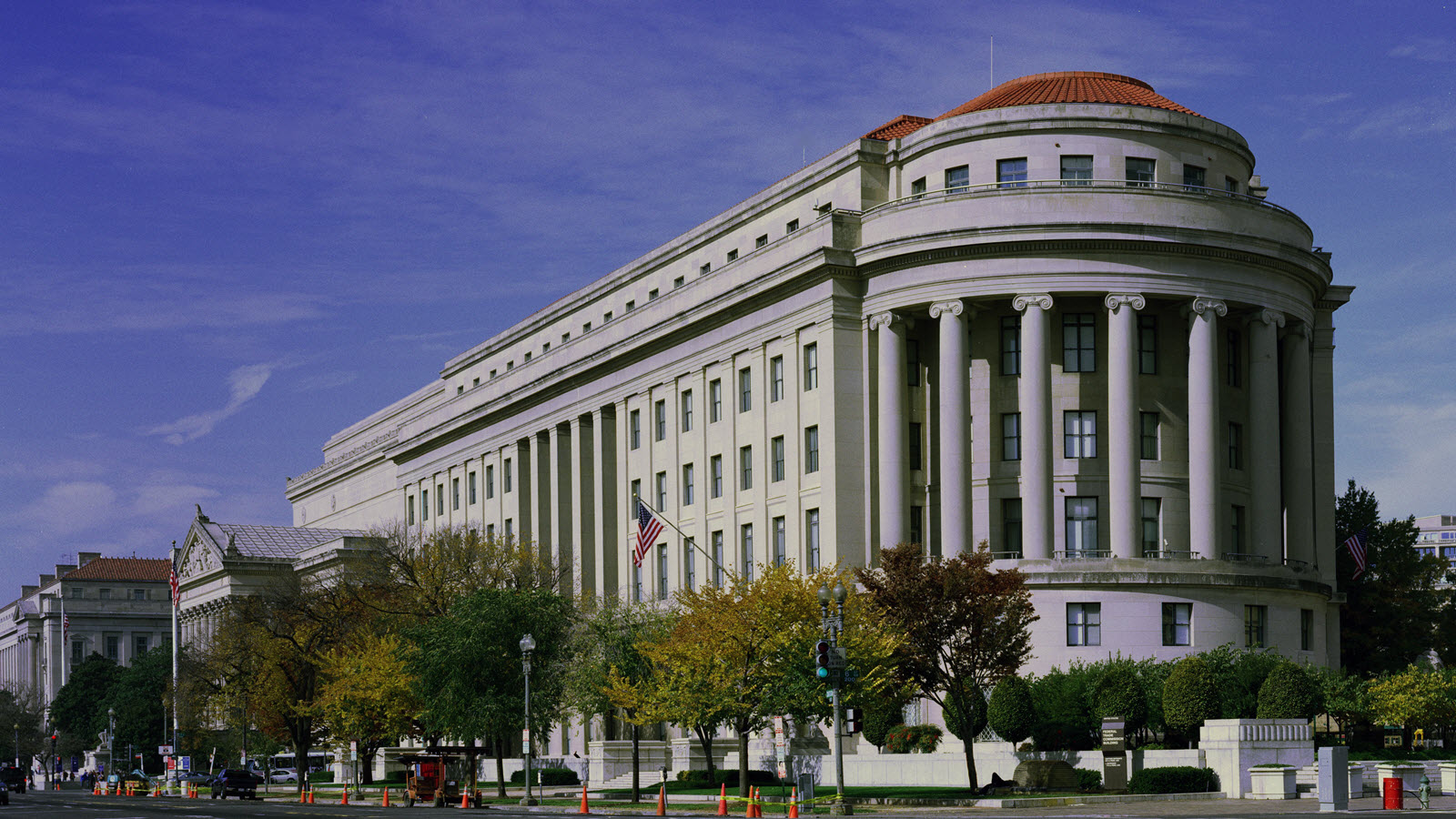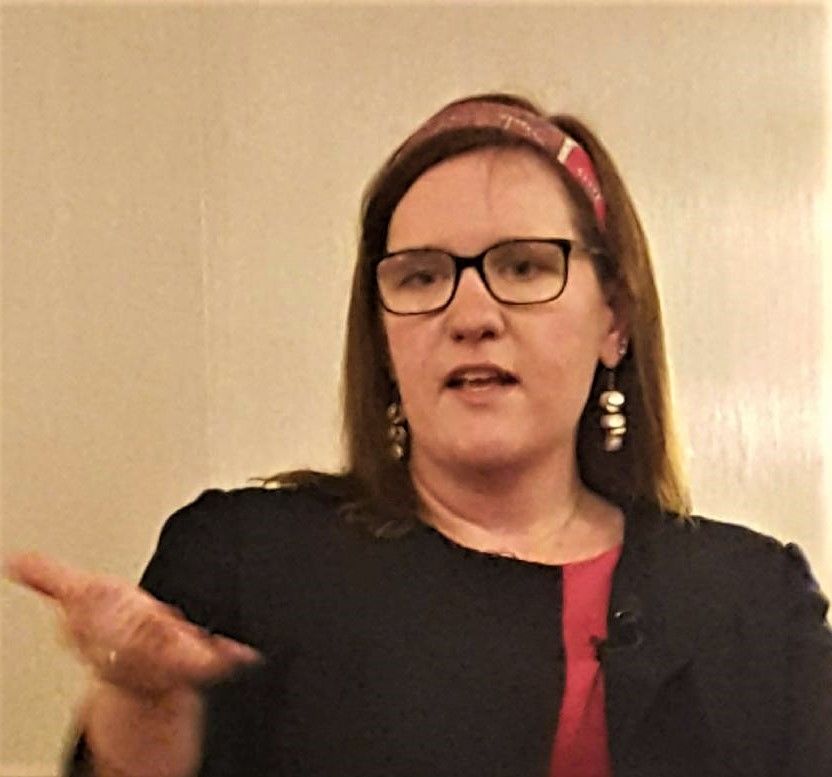FTC Beefing Up Its 'Big Tech' Probe as Other Policymakers Join Assault

The smarter way to stay on top of broadcasting and cable industry. Sign up below
You are now subscribed
Your newsletter sign-up was successful
The Federal Trade Commission is accelerating its investigation of so-called "Big Tech" and Silicon Valley's moves into media ventures (among other sectors), FTC commissioner Rebecca Slaughter said at the monthly luncheon of The Media Institute on Thursday. She said that the agency has assigned 17 attorneys to the examination of potential antitrust violations as the big companies - sometimes known as GAFA, an acronym for Google, Apple, Facebook, Amazon - have gobbled up an array of specialty providers.

"When you're understaffed, you don't take staff away from other projects" unless there is a high priority, Slaughter explained. The Democratic commissioner voiced concern about Big Tech's impact "on journalism and democracy," noting that that the FTC's investigation will "look at the creative approach" of the companies, while treading carefully on First Amendment issues.
She said that enforcement actions are "very complicated."
"We should be thinking very hard about different kinds of concentration," Slaughter said.
Her comments came the day before the House Judiciary Committee unveiled its own probe of practices among GAFA (sometimes also known as "the gang of four") and during a week that saw several other developments reflecting Washington's increasing attention to GAFA activities.
Separately, in her Media Institute remarks, Slaughter steered clear of net neutrality, saying that "there's nothing the FTC could be doing."
"We don't have the authority to do the substantive enforcement that the FCC" can handle, she said.
The smarter way to stay on top of broadcasting and cable industry. Sign up below
She does expect increasing FTC attention to privacy issues, insisting that it will not involve a partisan divide among commissioners. Slaughter acknowledged that the current policies of notice and choice during online authorizations generally "don't work" because consumers who are "confronted ...with long terms and conditions" don't read them or don't understand them. She said that the FTC's approach to privacy protections will take into consideration the stiff requirements of Europe's General Data Protection Regulation (GDPR) and the new California Consumer Privacy Act (CCPA), which goes into effect in January. She did not predict how the FTC's eventual decisions will encompass those strict protections.
The agency will try to "get rid of some of the antiquated exceptions" for nonprofit organizations and common carriers, Slaughter said.
Slaughter also cited the upcoming review of the Children's Online Privacy Protection Act (COPPA), which is in the midst of a public comment period. She noted that the current procedure "goes farther" than previous re-evaluations because of the changes in the digital media landscape in recent years.
Elsewhere in D.C.: Increasing Focus on Tech Giants
Slaughter's remarks to the Media Institute came amid a week of pronouncements about government examinations of high tech firms. On Monday, attorneys general from 48 states, the District of Columbia and Puerto Rico said they will collectively launch an antitrust investigation of Google. (A week earlier another group of AGs from nine states said they are investigating Facebook.) Meanwhile, the Justice Department has initiated a "civil investigate demand" (CID), asking Google to disclose information about its prior dealings with antitrust regulators.
Related: Hill Gets Pre-Pushback on Big Tech Antitrust Hearing
On Tuesday, Bilal Sayyed, director of the FTC's Office of Policy Planning, said that establishing new guidelines for applying antitrust laws to the tech giants is his "highest priority." In a major presentation at the Georgetown University Law Center, Sayyed said his goal is to create an "analytic framework for identifying, evaluating and remedying conduct by dominant technology platform companies."
"It is intended to support the immediate and long-term enforcement efforts of the Commission," Sayyed added.
Analysts say the FTC's current efforts are most likely not building cases against any company but rather focused on preliminary evaluations of whether the tech firms have broken any laws.
On Friday, House Judiciary Committee investigators sent letters to Amazon, Apple, Facebook and Google, seeking extensive financial records and business documents - a move seen as a prelude to a "top-to-bottom" antitrust review. The congressional probe is expected to determine if and how the GAFA companies have harmed consumers and competition.
"There is growing evidence that a handful of corporations have come to capture an outsized share of online commerce and communications," said Judiciary Committee chairman Rep. Jerry Nadler (D-NY). He said the probe - which will include reviews of the numerous acquisitions by the GAFA firms - will focus on how the companies are exercising their increasing market power and "whether they are using their dominance in ways that have harmed our economy or democracy, and how Congress should respond."
Contributor Gary Arlen is known for his insights into the convergence of media, telecom, content and technology. Gary was founder/editor/publisher of Interactivity Report, TeleServices Report and other influential newsletters; he was the longtime “curmudgeon” columnist for Multichannel News as well as a regular contributor to AdMap, Washington Technology and Telecommunications Reports. He writes regularly about trends and media/marketing for the Consumer Technology Association's i3 magazine plus several blogs. Gary has taught media-focused courses on the adjunct faculties at George Mason University and American University and has guest-lectured at MIT, Harvard, UCLA, University of Southern California and Northwestern University and at countless media, marketing and technology industry events. As President of Arlen Communications LLC, he has provided analyses about the development of applications and services for entertainment, marketing and e-commerce.

